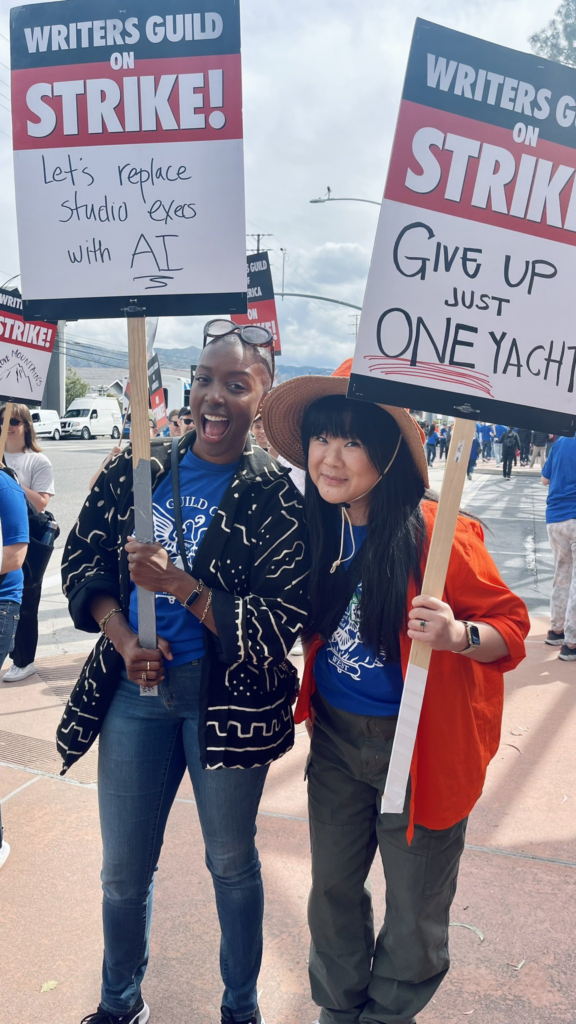Increasing inflation, AI, and streaming services are currently pressing issues of the collective American experience. These things can be a mixed bag. Inflation is causing the rise of basic necessities like housing and food to luxuries such as entertainment and travel. AI is interesting, useful, and terrifying. And streaming services help ease the pains of our reality by distracting us from it all. However, in Hollywood, these things have collided and the Writer’s Guild of America, or WGA for short has put a full stop to writing.
The Writer’s Guild of America has gone on strike as of May 2nd, 2023. This strike will cause an immediate stop of Late-night shows and a gradual stop of Network shows, daytime soaps, and potentially streamers such as Netflix, Amazon Prime, and HBO Max.
The last time the WGA went on strike was in 2007, the strike lasted 100 days and into 2008. One key goal of the 2007 strike was to negotiate royalties from DVD sales. The result in the 2008-2009 year of TV was a focus on reality shows with seasons of many beloved shows being cut short. Some people claim that this changed the reception of some shows and prevented the renewal of some shows. But that may be a small price to pay for writers trying to make a living in their careers.
The 2023 strike is in response to the changing world of streaming. Writers aren’t getting residuals from streaming services the way they used to with network shows. This makes it hard to find a steady income. TV has a seasonal schedule and writers in the past have relied on their residuals to live in the off-season. According to CBS inflation-adjusted pay for screenwriters has fallen 14%. Additionally, comedy-variety show writers don’t have a minimum wage meaning they get paid even less.
The WGA wants increases for writers totaling $429 million a year, a minimum number of writers in the writing room, improvements in streaming residuals, and strict rules regarding AI in writing. Rules that would prevent rewriting of material using AI and prevent teaching AI using material written by Guild members.
Studios have not been receptive to these demands, especially concerning AI. They want to keep the technology and the number of paid (human) writers at a minimum The number of writers on staff continues to shrink to cut costs. Many studios have spent huge amounts of money to get their streaming services off the ground and are still waiting to see the profits. They don’t know how much they can afford to spend on the shows they’ve been pumping out. Writer and comic Adam Conover tweeted ‘They want to start paying you by the day.” The studios are starting to pay writers for a day of work instead of season-long contracts. Which makes writers disposable. It also would be easier to fire people who disagree with the company.
Adam Conover, for example, is one active voice in the strike. “David Zaslav, the CEO of Warner Bros. Discovery, the parent company of the network I’m talking to you on right now, was paid $250 million last year, a quarter of a billion dollars,” Conover said during his interview with CNN anchor Sara Sidner. “That’s about the same level as what 10,000 writers are asking him to pay all of us collectively, alright. So I would say if you’re being paid $250 million — these companies are making enormous amounts of money. Their profits are going up. It’s ridiculous for them to plead poverty.” Writers have an increasingly small share of the work they are doing. Greater money is going to CEOs and shareholders. Both of which would be nowhere without the writers.
Negotiations are not making progress yet and the Guild says they expect the strike to last a few months. This isn’t the first strike as the WGA has had six strikes since 1960 and it won’t be the last. But hopefully, there will be an equitable resolution for everyone.



